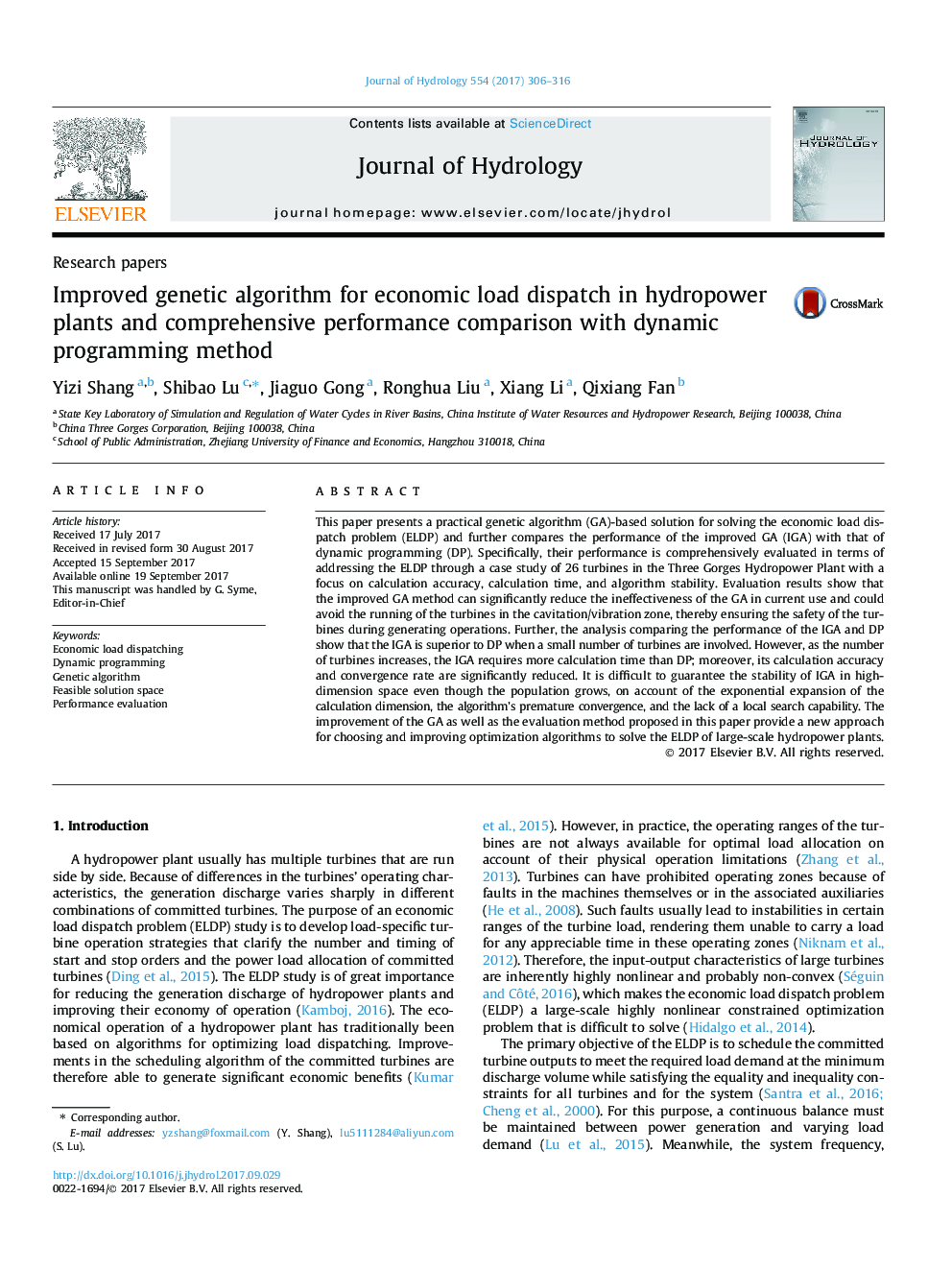| Article ID | Journal | Published Year | Pages | File Type |
|---|---|---|---|---|
| 5771100 | Journal of Hydrology | 2017 | 11 Pages |
Abstract
This paper presents a practical genetic algorithm (GA)-based solution for solving the economic load dispatch problem (ELDP) and further compares the performance of the improved GA (IGA) with that of dynamic programming (DP). Specifically, their performance is comprehensively evaluated in terms of addressing the ELDP through a case study of 26 turbines in the Three Gorges Hydropower Plant with a focus on calculation accuracy, calculation time, and algorithm stability. Evaluation results show that the improved GA method can significantly reduce the ineffectiveness of the GA in current use and could avoid the running of the turbines in the cavitation/vibration zone, thereby ensuring the safety of the turbines during generating operations. Further, the analysis comparing the performance of the IGA and DP show that the IGA is superior to DP when a small number of turbines are involved. However, as the number of turbines increases, the IGA requires more calculation time than DP; moreover, its calculation accuracy and convergence rate are significantly reduced. It is difficult to guarantee the stability of IGA in high-dimension space even though the population grows, on account of the exponential expansion of the calculation dimension, the algorithm's premature convergence, and the lack of a local search capability. The improvement of the GA as well as the evaluation method proposed in this paper provide a new approach for choosing and improving optimization algorithms to solve the ELDP of large-scale hydropower plants.
Related Topics
Physical Sciences and Engineering
Earth and Planetary Sciences
Earth-Surface Processes
Authors
Yizi Shang, Shibao Lu, Jiaguo Gong, Ronghua Liu, Xiang Li, Qixiang Fan,
